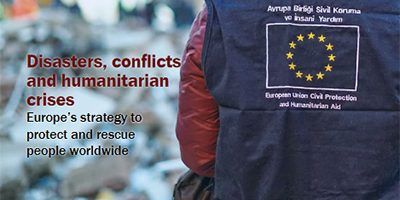Was the Ukrainian war correspondent, Yurii Butusov, right when he said, in a recent interview in the Neue Züricher Zeitung, that the Third World War has already begun with the war in Ukraine? The Spanish author, Raúl Sánchez Cedillo, in his book This war will not end in Ukraine[1] refers back to the slide into World War I and also thinks that the next world war has already begun.
The world order is indeed at a turning point. China and Russia are aiming for a multipolar world to replace the US as the leading power. But will the multipolar world only be a transition phase, at the end of which China will rise to become the leading world power?
While Putin brutalises his country and takes Russia back to the dark ages, the US strongly supports Ukraine. Thus engaged, the US capacity to intervene in another region is weakened from Beijing’s perspective, and the US will no longer have the power to prevent China from taking Taiwan by force.
It is therefore plausible that the war in Ukraine is strengthening the ties between Moscow and Beijing, as both have a common adversary: western democracies. In addition, China has a major interest in the war continuing. By keeping the US bound to Europe/Ukraine, China can hasten the advent of a new world order in which, becoming stronger than war-weakened Russia, it can vie with the US to be the world’s co-leader, in order to later replace it as the dominant world power.
This China, governed today with an iron fist to the detriment of human rights and democratic values, immense by its demography, its land mass and its diversity, has succeeded in muzzling the poor masses and boosting its weight in the world by its nuclear weapons, its access to space as well as its enormous armaments projects on land, sea and air.
And what could Europe’s role be in a future world order? Without doubt, it must be strong and sovereign to be a solid partner in the global system. French President Emmanuel Macron’s vision of a common European political identity should become a common objective. He is convinced that Europe should strive for more strategic autonomy so as not to be drawn into conflicts, which are not in Europe’s interest. But Macron is not calling for Europe’s military self-sufficiency nor strategic autarky and is not questioning the alliance with the US. Rather, he wants a Europe able to better assert its interests in a new world order.
This is very much in line with German Chancellor Olaf Scholz’s speech at the European Parliament in Strasbourg on 9 May 2023: Europe must not fail to reach out to true partners and allies around the globe and be itself a reliable partner. And its societies must build resilience against every attack on democracy, whether from inside or outside the Union.







